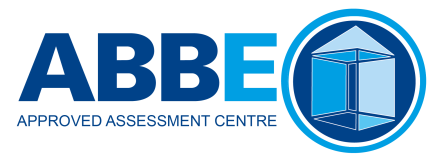
Why real-life scenarios are important elements in our fire safety training
18th May 2023
At Vulcan Fire Training we want everyone who attends our courses to feel technically grounded and confident in whatever role they’ve been given with regards to fire safety. Whilst there’s a considerable amount of fire safety and regulatory information to take on board, it’s not just about theory, it’s about giving you a range of contexts and scenarios that can make you think how you’d react to a wide range of fire safety situations. After all, once you’ve undertaken your training you’ll be returning to your workplace where you’ll need to apply your learning in a real-life setting. You will be presented with numerous scenarios, which is why we want your training to be as realistic as possible.
This blog gives you an overview of why our learning process puts you in the hot seat, as well as providing you with all the theoretical information, skills, and course material you need to feel fully accomplished in your fire safety role.
Visualise potential risks and dangers
Examples of real-life scenarios help our delegates to visualise and understand the potential dangers of a fire emergency. This approach provides a more practical and engaging learning experience and will help you retain key bits of information.
Creates a realistic learning environment
Using real-life scenarios in fire safety training helps to create a more realistic learning environment. The scenarios are based on actual fire emergencies and provide delegates with the chance to consider their responses based on the facts presented to them, in a safe and controlled environment.
Identifies potential hazards
Talking through real-life scenarios will help you to identify potential fire hazards in the workplace. By practising response skills in a simulated environment, you’ll be able to identify potential hazards that may have been overlooked before. This will enable you to look at various proactive measures to be taken to prevent a fire before it occurs.
Improves decision-making skills
In the event of a fire, split decision-making skills are critical. By practising response skills based on real-life scenarios, delegates can improve their decision-making skills in a safe and controlled environment. This approach will enable you to understand the importance of quick decision-making and help you develop the confidence to make sound decisions during a real emergency.
Builds teamwork and communication skills
When it comes to any fire emergency, teamwork and communication is essential. From developing our extensive range of courses, we know that giving our delegates examples of real-life incidents builds teamwork and communication skills. This is essential when you’re in a situation where you must make a series of rapid judgments, some of which could even be life or death decisions. It’s all about bringing together a whole range of responses, reactions, and decisions - and ensuring that everyone is working towards a common goal.
Ultimately, we want all our delegates to feel engaged and empowered by their training. We also actively encourage delegates to share their experiences and working environments so that we can all learn from each other.
As these two testimonials demonstrate, our training is designed to empower you to return to your workplace with all the knowledge and experience you need.
“The course was very informative with plenty of real examples”, Sandra Clark, Southern Housing Group.
“A very interesting and useful course with a good mix of practical and theory. I really enjoyed it and learnt a lot from it. The trainer was brilliant, very informative and helpful” Jaroslaw Panek, East Suffolk North Essex Foundation Trust
Ready to start your Fire Safety training journey? Take a look at our range of courses running through to the end of 2023, which also include online options for busy professionals who can’t get away from the office.


